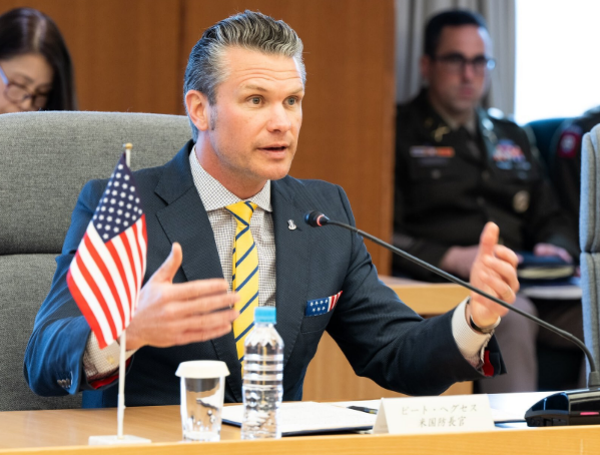In a move aimed at aligning Department of Defense (DoD) advisory bodies with the department’s “new strategic direction and policy priorities,” Defense Secretary Pete Hegseth has directed the dismissal of dozens of committee members.
The sweeping decision, announced in a memo released Thursday, sparked discussions about the role of these advisory bodies and the potential impact of their restructuring.
READ: Florida Rep. Jared Moskowitz Joins Bipartisan Push For Disaster Spending Transparency
“To support the new strategic direction and policy priorities of the Department, we require fresh thinking to drive bold changes,” Hegseth stated in the memo. “Therefore, informed by the recently concluded 45-day review, I direct the conclusion of service of all members of each DoD advisory committee, board, or panel subject to the attached memorandum… consistent with applicable law.”
The order affects numerous committees, including the high-profile Defense Policy Board. Notably, former Obama administration official Susan Rice was among those removed. While the Defense Policy Board has garnered significant attention, the dismissal impacts a wide array of advisory groups within the DoD.
Federal advisory committees, established by Congress, Presidents, and executive agencies, serve to provide external expertise and policy recommendations. Operating under various names such as task forces, panels, and boards, their core function is to facilitate the exchange of policy ideas and offer advice to federal departments.
READ: U.S. CENTCOM Intensifies Campaign Against Houthis In Yemen, Hundreds Eliminated
Many of these committees operate under the Federal Advisory Committee Act (FACA), enacted in 1972. The DoD, with 41 FACA-regulated committees, ranks as the fifth-largest federal agency in terms of committee numbers.
The FACA framework aims to ensure a diverse range of viewpoints are considered, ultimately providing cabinet secretaries and the President with well-rounded advice. The committees are also subject to open meeting laws, promoting transparency and accessibility of their recommendations to Congress.
Historically, committee memberships have served dual purposes: rewarding political allies and incorporating bipartisan perspectives. However, critics argue that the inclusion of political adversaries can lead to watered-down recommendations that avoid controversial or transformative proposals.
Furthermore, concerns have been raised about leaks from these boards, potentially undermining sitting administrations.
Despite these criticisms, some committees, such as the Defense Advisory Committee on Women In The Service (DACOWITS), have demonstrated significant influence on military policy, with their recommendations often adopted by the DoD.
READ: Report: Pilot Error, Communication Issues Contributed To Deadly D.C. Mid-Air Collision
Hegseth’s directive does not eliminate all advisory committees, as many are mandated by statute. Instead, it paves the way for the appointment of new members whose perspectives align more closely with the department’s updated strategic goals.
The DoD has yet to announce a timeline for the appointment of new members or provide details on the structure of the reconstituted committees.
Please make a small donation to the Tampa Free Press to help sustain independent journalism. Your contribution enables us to continue delivering high-quality, local, and national news coverage.
Connect with us: Follow the Tampa Free Press on Facebook and Twitter for breaking news and updates.
Sign up: Subscribe to our free newsletter for a curated selection of top stories delivered straight to your inbox.
